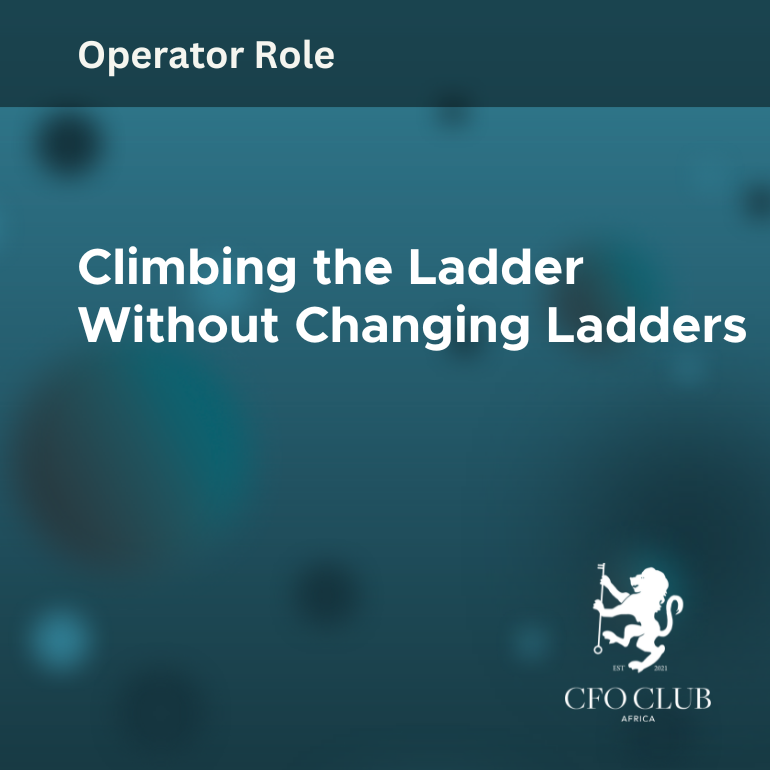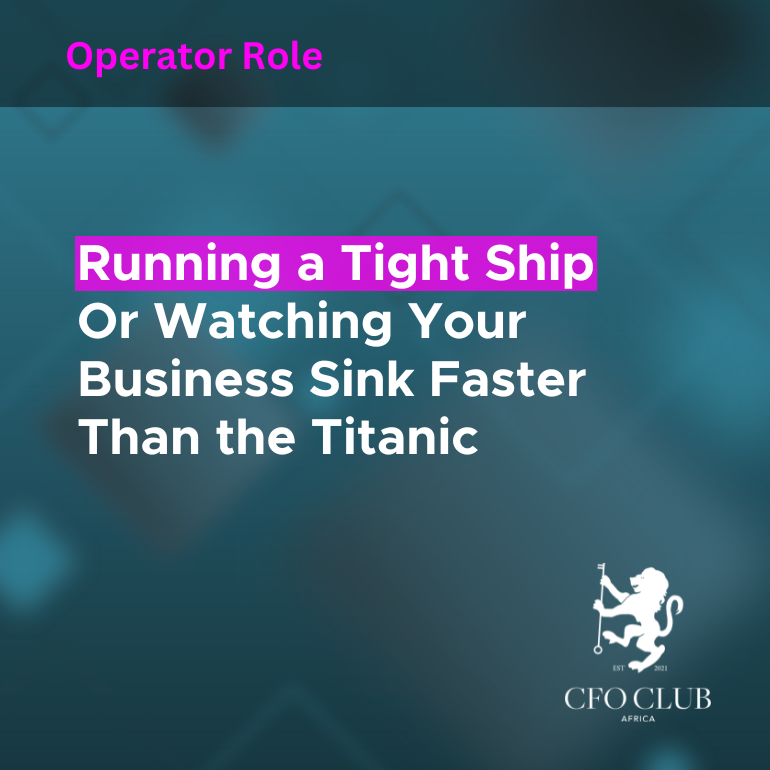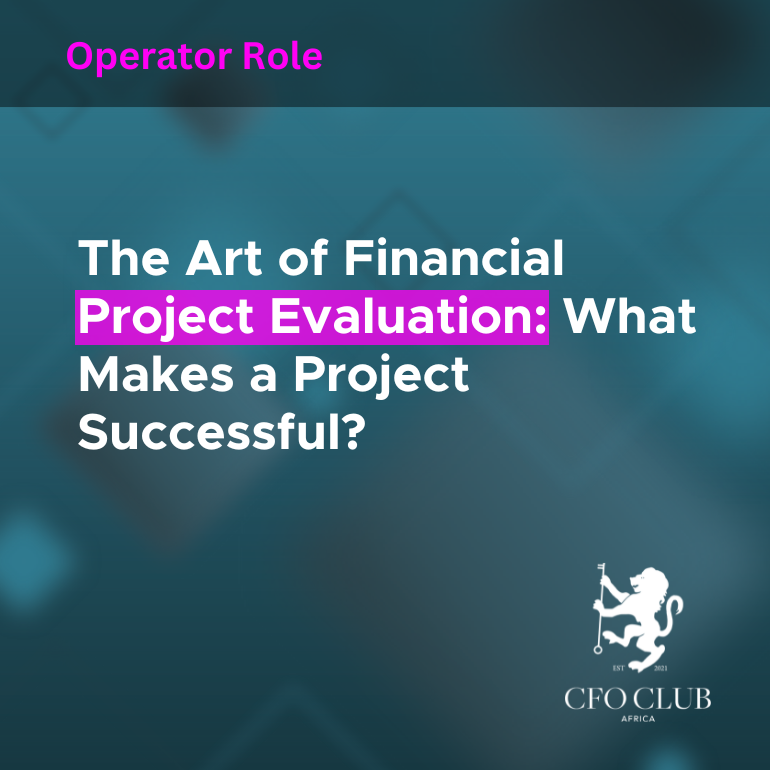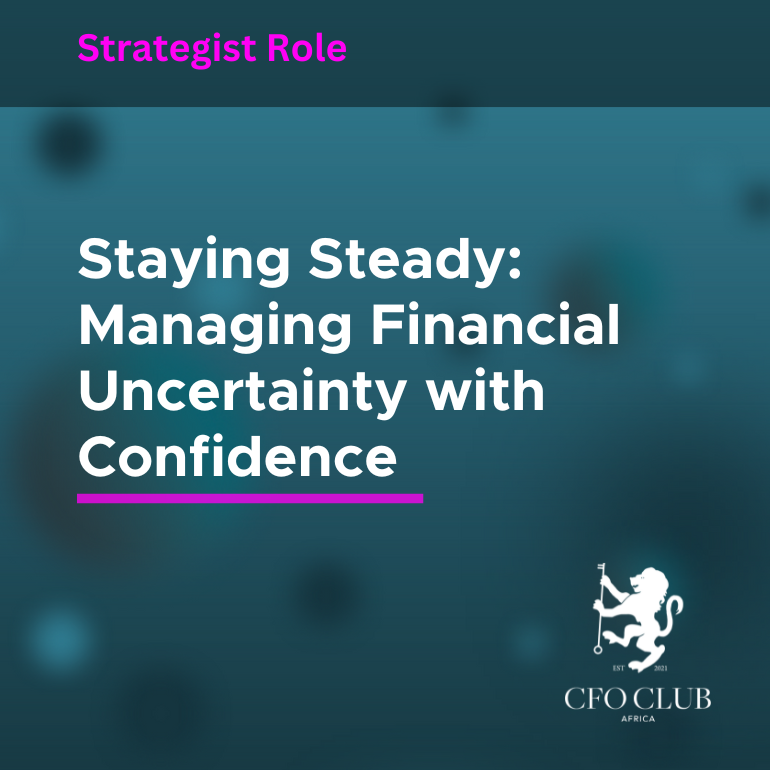Climbing the Ladder Without Changing Ladders
Climbing the Ladder Without Changing Ladders
It is easy to romanticise the modern finance career as a fast-paced journey filled with lateral moves, high-impact projects, and strategic leaps across industries. But behind many successful CFOs lies a very different story. One shaped by consistency, trust, and years of growth within a single organisation.
Staying in one company for an extended period may not always be glamorous, but it can provide one of the most underestimated routes to leadership. In a time when career mobility is celebrated, the value of long-term internal growth is often overlooked.
This article explores how growing within one organisation creates stronger, more grounded CFOs. It highlights the depth, insight and credibility that come from staying the course.
Why Long-Term Growth Still Matters
In some circles, staying with the same employer for more than a few years is seen as a lack of ambition. The assumption is that true progress comes from moving constantly. But in finance, the opposite is often true. Remaining with one organisation can provide a unique strategic advantage. It allows professionals to build deep institutional knowledge, forge strong internal relationships, and understand the full operating rhythm of the business.
A CFO who has grown inside a company is not only technically skilled. They are also fluent in its language, history, and unwritten rules. They understand how decisions were made in the past and why certain systems evolved the way they did. This historical awareness enables them to navigate complexity with greater clarity and make better long-term decisions.
The Analyst Years: Where Leadership Potential Begins
Many finance careers begin in roles that seem far removed from executive leadership. Analyst positions, junior accounting roles, and financial support functions often appear transactional. But these early stages are where leadership potential quietly develops.
An analyst who learns to interpret data with curiosity, ask insightful questions, and communicate findings with clarity is already building the habits of a future CFO. If that person stays within the organisation, they accumulate knowledge that cannot be gained from external consultants or new hires. They know where to find the information others cannot. They understand how changes in one department affect another. And they gain credibility by delivering results consistently over time.
Lateral Moves Are Strategic Moves
One of the key benefits of internal growth is the ability to move laterally before moving upward. Finance professionals who work across different departments, business units, or regional offices build a richer view of the business. A stint in operations finance, for example, might offer practical insight into production and cost drivers. A role in commercial finance might sharpen commercial acumen and stakeholder management.
These cross-functional experiences prepare professionals to make better executive decisions. They do not just understand the numbers. They understand the story behind the numbers. By the time they reach executive level, they have the confidence and business fluency needed to challenge assumptions and contribute to strategic planning.
Internal mobility also strengthens internal networks. Knowing how to work with colleagues across functions is vital for a CFO who must influence beyond the finance department.
Strategic Thinking Takes Time to Develop
Financial reporting, budgeting, and compliance can be taught relatively quickly. Strategic thinking, on the other hand, takes years to develop. It grows through exposure to complex decisions, observing how leaders respond under pressure, and reflecting on the long-term impact of financial choices.
Professionals who grow within one organisation often develop a sense of strategic maturity. They do not chase short-term wins at the expense of long-term value. They understand that a decision which looks good in isolation might damage other parts of the business. This broader perspective makes them better suited to the CFO role, where balancing short-term performance with long-term sustainability is essential.
Trust Cannot Be Fast-Tracked
Another major benefit of growing within one organisation is trust. When people see you consistently deliver over many years, they trust your judgement, your integrity, and your commitment. This trust is difficult to build quickly and nearly impossible to import from outside.
Trusted CFOs are able to challenge executive teams without alienating them. They can lead difficult conversations with a sense of balance. And they often have the confidence of their CEO and board because of their long-standing reputation.
This trust also creates influence. People listen more closely when they believe you understand the business and care about its success. It becomes easier to lead change, align stakeholders, and drive performance.
Avoiding the Pitfalls
Of course, long tenure is not automatically beneficial. There are risks. It is possible to become too comfortable, resistant to change, or disconnected from external market trends. That is why internal growth must be intentional. Professionals who thrive over the long term are those who remain curious, seek out new challenges, and continue to invest in their own development.
Organisations also play a role. If internal candidates are overlooked or denied growth opportunities, talent will eventually leave. But when companies actively support internal mobility, value institutional knowledge, and create clear leadership pathways, they benefit from stronger succession pipelines and more engaged leaders.
A Different Kind of Leadership
When someone becomes CFO after years of internal growth, their leadership carries a different tone. It is less about performance metrics and more about stewardship. They have seen the business through highs and lows. They know what makes the culture work. And they feel a personal responsibility to protect and improve it.
This connection to the business is powerful. It creates leaders who do not just manage numbers. They shape the direction of the business with a sense of care and long-term perspective.
Final Thoughts
There are many valid routes to the CFO seat. Some arrive from consulting backgrounds, others from different industries. But those who rise through the ranks within one organisation bring something unique to the role. They bring depth. They bring trust. And they bring a genuine connection to the business they serve.
In a world where rapid change is often celebrated, there is something to be said for staying the course. Growing within one organisation may not always be fast, but it is often the most effective path to building real leadership capability.
For finance professionals looking to the future, the message is clear. You do not have to leave to grow. Sometimes, the most powerful step forward is taken by digging deeper into where you already are.





